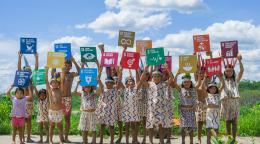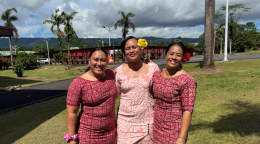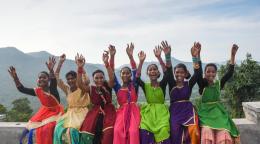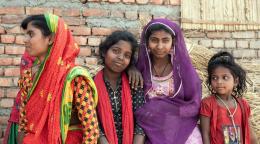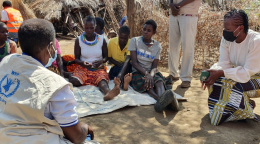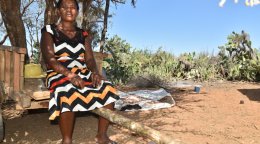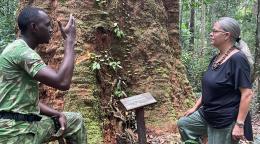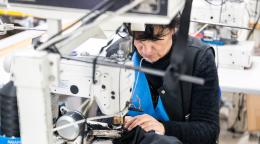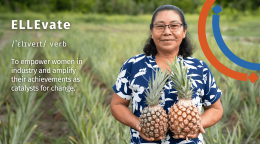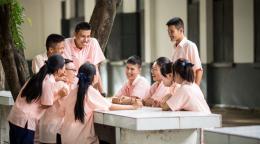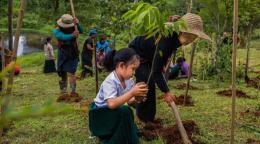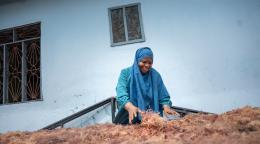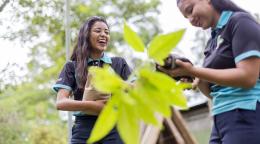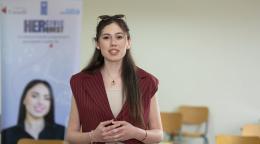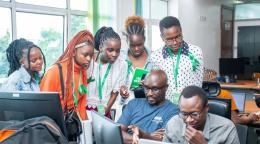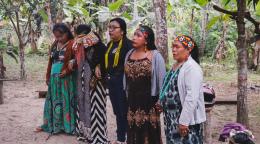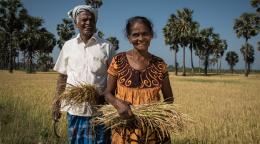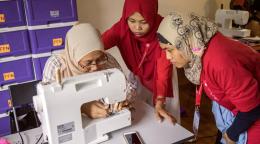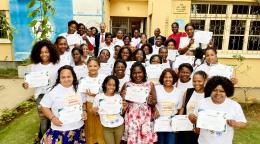UNESCO promotes knowledge exchange between artisans from Peru and Mexico to strengthen textile heritage and sustainability
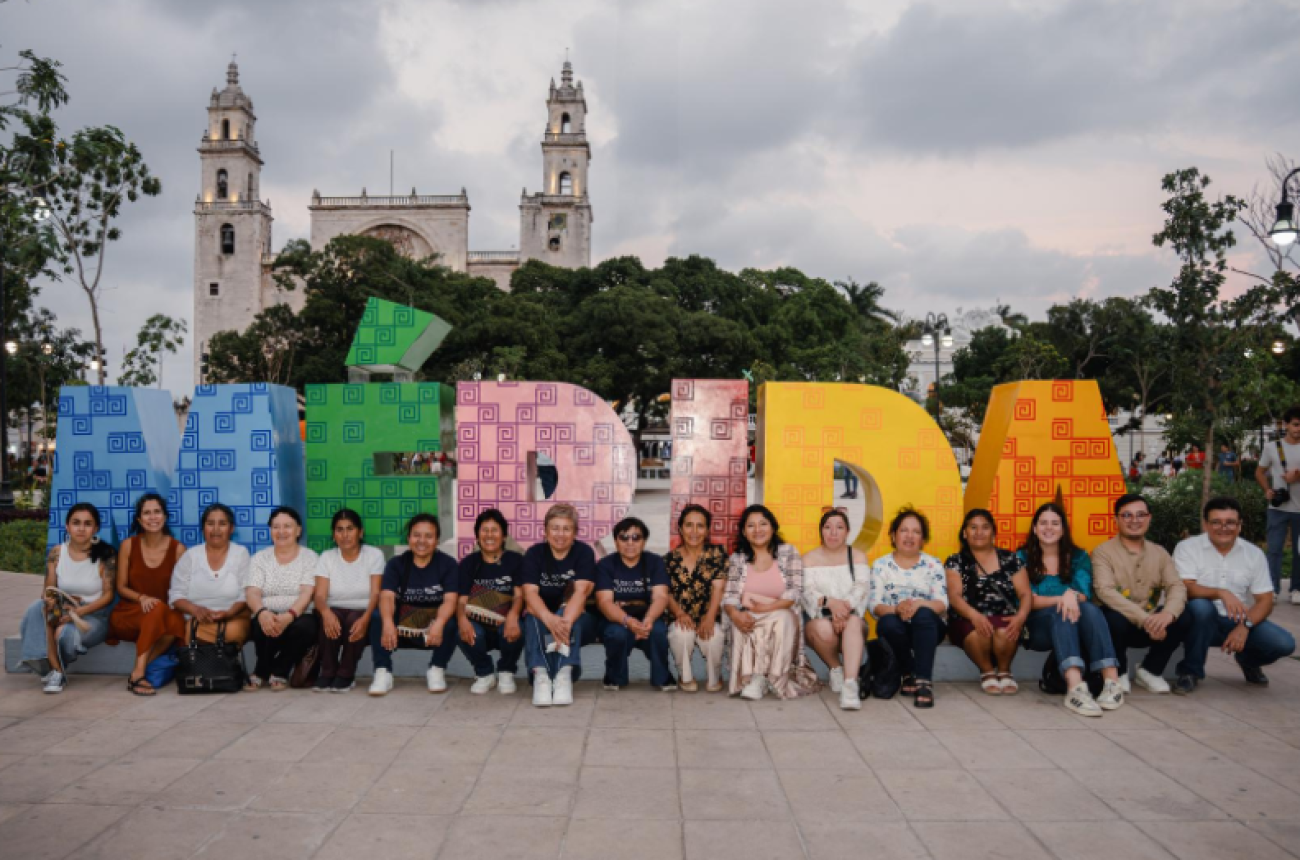
The Binational Textile Art Gathering, organized by UNESCO, brought together women artisans from Yucatán (Mexico), Cajamarca, Ayacucho, and Lima (Peru) for gatherings held in Lima (3 to 4 March) and Yucatán (17 to 18 March). As part of the collaborative work of UNESCO’s offices in Peru and Mexico, embroiderers and textile creators from both countries developed proposals to safeguard their textile art as living heritage and to foster economic development through creativity, community organization, and cooperation.
This collaboration offered an ideal platform to identify the strengths, opportunities, weaknesses, and threats in the textile sector and its traditional knowledge, recognized as intangible cultural heritage. It also paved the way for concrete proposals aimed at promoting sustainability and enhancing commercial capacity.
Participants included members of the “Segundo Vuelo” programme, part of LATAM Airlines Peru’s sustainability program implemented by UNESCO Peru and the “Economic and Social Development with a Gender Perspective through Textile Art” initiative led by UNESCO Mexico, with support from Fundación Banorte and the Government of Yucatán through its Ministry of Culture and the Arts (Sedeculta).
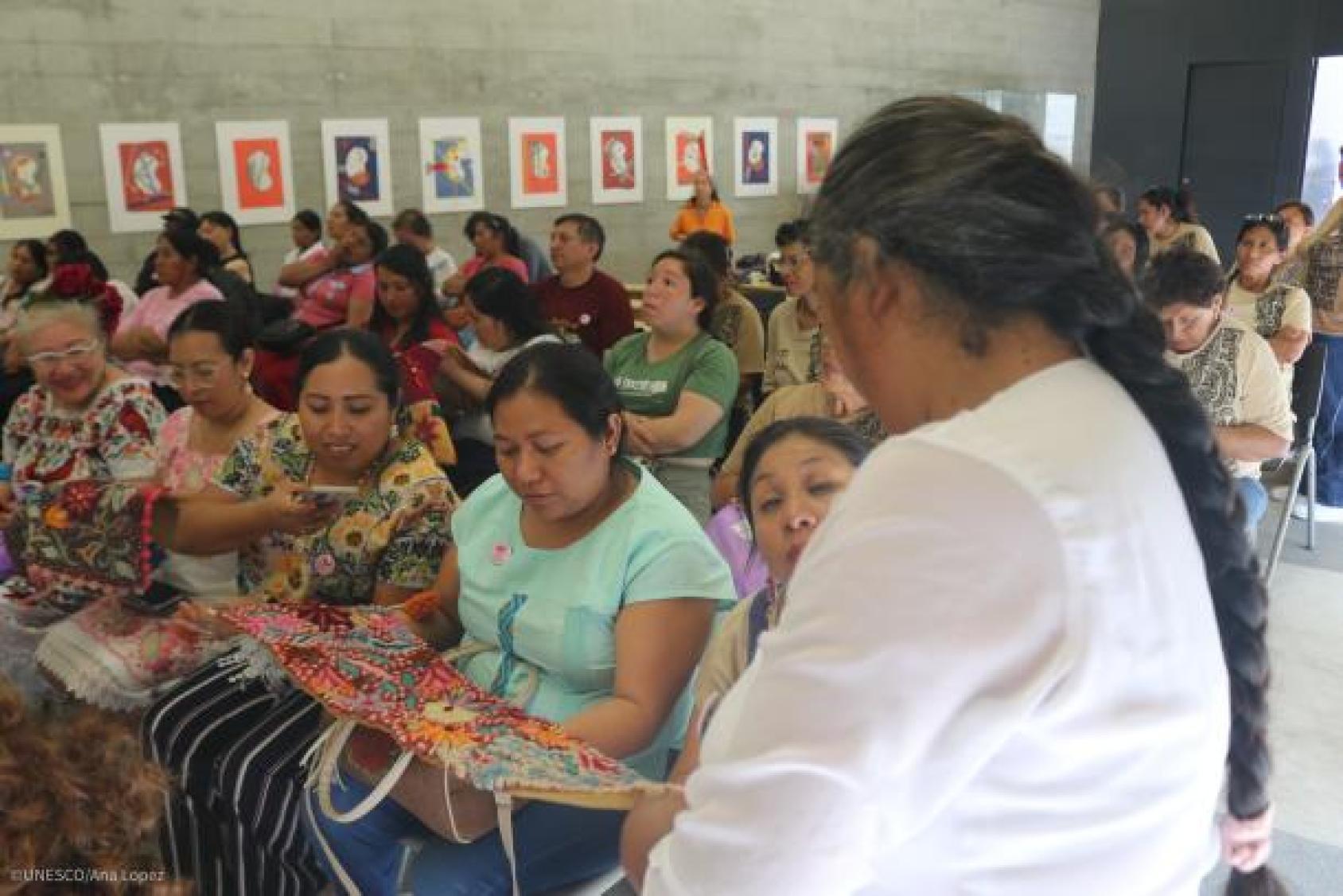
Guiomar Alonso Cano, UNESCO Representative in Peru, said, “Today’s artisans are not only preserving traditional techniques, but they are also innovating, fusing ancestral knowledge with modern technologies and trends. In doing so, they honour the heritage, meet contemporary demands, and unlock new opportunities in both national and international markets. Textile art not only connects us to our roots, it also drives social and economic empowerment.”
Artisans from both Mexico and Peru identified common challenges, including the rise of digital industrial machinery, difficulties in local cotton production, and the need to expand markets. However, they also highlighted opportunities for their communities and countries, such as raising awareness about the intangible cultural heritage they safeguard and promoting the quality of the garments and embroidery they create.
“The gathering was a valuable experience, as it allowed me to connect with others who came to appreciate our work... We shared our perspectives, and I found this exchange enriching, as listening to diverse ideas is equally important,” said Florencia Sandonaz, a member of the SISAN Artisans Association – Pachacamac Museum and a beneficiary of the Segundo Vuelo programme.
Participants were selected by their organizations to represent their voices beyond their home countries, sharing traditional knowledge and working methods with other artisan groups. "The opportunity to share and learn from our fellow artisans in this country has been a truly beautiful experience, one I will carry in my heart forever. Taking a piece of Peru and of them with me is something truly wonderful," said Zelmy Dominguez, an artisan from Yucatán.
UNESCO fosters the exchange of knowledge and the free flow of ideas to depeen mutual understanding and promote a more equal and peaceful world. This mission is embodied in the Binational Textile Art Gathering, which, alongside two key projects, aims to revalue the textile work of women who preserve living heritage, enhance their technical skills, and contribute to generating employment and economic opportunities, as well as gender equality.
“The artisans are the driving force behind these efforts, and their role is a matter of justice for those who have long been the guardians of their heritage, their families’ economies, and their communities. Therefore, UNESCO will continue to promote gender equality, including initiatives focused on masculinities, as we are doing in Yucatán,” said Andrés Morales, UNESCO Representative in Mexico.
Manuel van Oordt, CEO of LATAM Airlines Peru, reaffirmed the company's commitment to sustainability and circular economy. “Sustainability is part of our DNA and embedded in our short-, medium-, and long-term goals. Segundo Vuelo program aligns perfectly with our objective of becoming a zero-waste-to-landfill group by 2027, with a strong focus on vulnerable communities. Today, we are proud to see united three amazing artisan communities: Ayacucho, Pachacamac, and Cajamarca giving new life to our unused uniforms,” he stated.
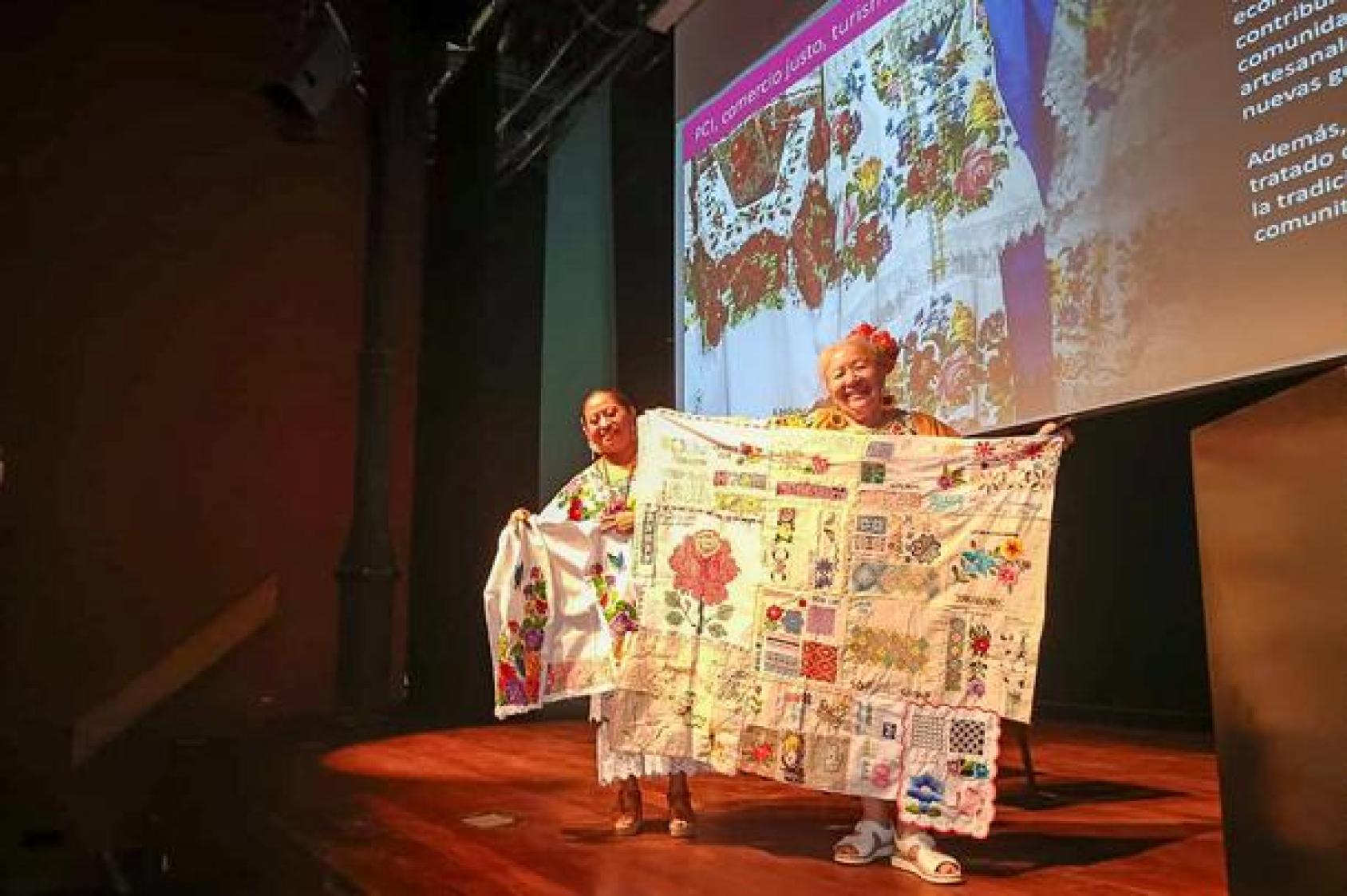
“Women’s development is a cornerstone of Fundación Banorte’s comprehensive programme, because when women thrive, families thrive, society thrives, and the country thrives. Preserving the textile art of our women is, in essence, safeguarding our cultural identity and history.” said the Director of Fundación Banorte, Jimena Prado Lebrija.
More information:
“Segundo Vuelo” forms part of LATAM Airlines Peru’s broader sustainability strategy. Since 2023, and within the Pact for Culture 2030, UNESCO Peru has provided technical support for the initiative, which repurposes unused textiles from LATAM operations into products that both celebrate Peruvian culture and empower women artisans across the country.
UNESCO Mexico’s project promotes economic and social development in communities through culture and a gender-focused approach. It has equipped more than 350 embroiderers across 12 municipalities with tools to safeguard embroidery as tangible and is expanding to include up to 22 municipalities in Yucatán.
